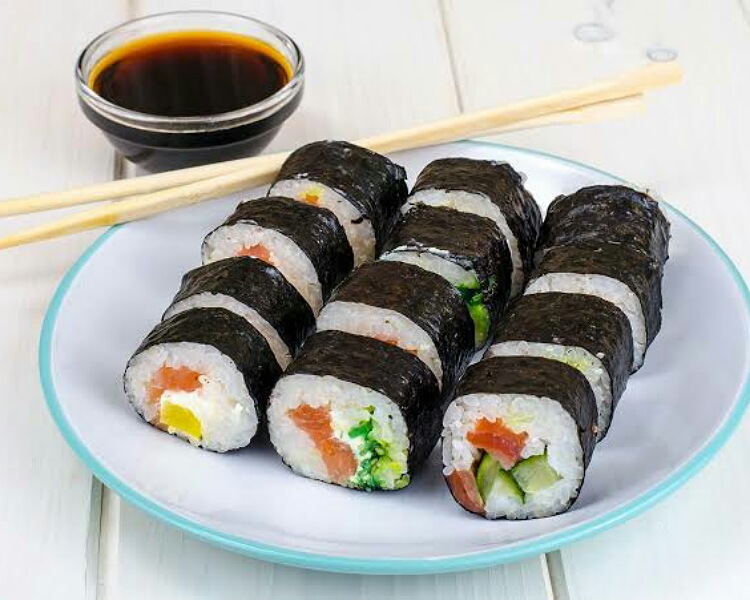Sushi made from rice with seafoods and vegetables is a simple dish from the Far Eastern nation of Japan. It has fresh ingredients and is easy to prepare. Added on it is elegantly plated and looks very impressive and palatable. But is it healthy?
Sushi and it’s health factor
Sushi is an extremely simple Japanese food dish. It is popular not only in Japan but has a global appeal. The fish consists of vinegared rice with seafood and vegetables. Both of these are often raw. It is one of the choicest food item that can never fail to impress. What are it’s benefits?
Benefits for health
Dietitian Trista Best from Balance One Supplements says:
“It typically includes nutrient-rich ingredients such as fish, seafood, vegetables, and rice, which can provide vitamins, minerals, and fiber to your diet,”
She adds:
“It is low in saturated fats, which can help reduce the risk of certain chronic diseases, such as heart disease and diabetes,”

Well-balanced meal
It contains protein rich fish with fibrous veggies and healthy fats rich avocados. Thus, it is a well-balanced meal in itself. Nutritionist Amy Goodson elaborates:
“Sushi can be a very healthful and nutritious food if prepared correctly, meaning keeping it simple with fish and vegetables,”
“Traditional sushi contains protein, carbohydrates, and some healthy fats, which all work in harmony together to help you feel fuller and more satisfied, and stabilize blood sugars.”
She continues:
“Fish is a high-quality protein source, and fatty fish specifically (salmon and tuna) are rich in the omega-3 fatty acids that our brains and bodies need,”
“Plus, sushi is typically wrapped in seaweed and stuffed with vegetables such as carrots, cucumbers, and avocado.”
Meets weekly requirements of fish
Dietitian Lauren Manaker adds:
“Since seafood is the prominent ingredient in most sushi meals, it’s a fabulous way to meet the goal of consuming 8 ounces of seafood per week,”

Research has revealed that the healthy fats of fish can lower the risk of heart disease, dementia, depression, and arthritis.
Healthy micronutrients
Amy shares:
“The omega-3 fatty acids in fatty fish support brain health, cell development, and may even reduce the risk of chronic disease and some cancers,”
Moreover, she says:
“Selenium, which is found in high amounts in yellowfin tuna, is an essential mineral and antioxidant that plays a role in thyroid function and metabolism.”
It has protein and vitamin D too.
Weight management
Moderate consumption of it can help us achieve our weight loss goals. Explaining on it, Trista Best says:
“Sushi can be a healthy food option for those trying to manage their weight, as it tends to be low in calories and high in protein and fiber,”
“Sushi rolls that contain vegetables like avocado, cucumber, and seaweed can be rich in antioxidants, which help protect your cells from damage.”
Read here: How to make Avocado Cucumber Sushi Rolls? (Healthy, Delicious Rolls)

But to maintain it’s healthiness, avoid adding too much of butter, cream or cheese in it. Also, avoid too much of salt while cooking it. One should be careful of the quality of fish. It should have been sourced from a healthy fish farm lest it is contaminated with heavy metals like mercury or lead.
